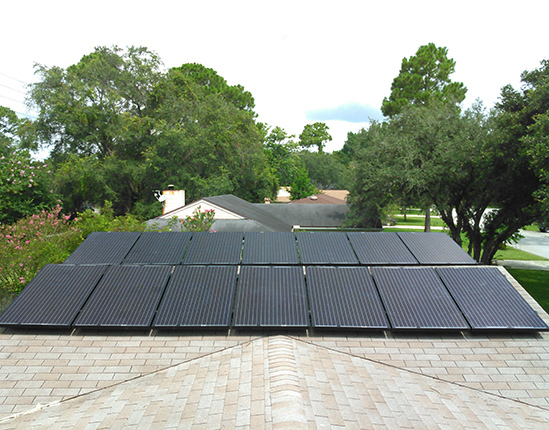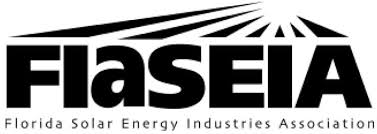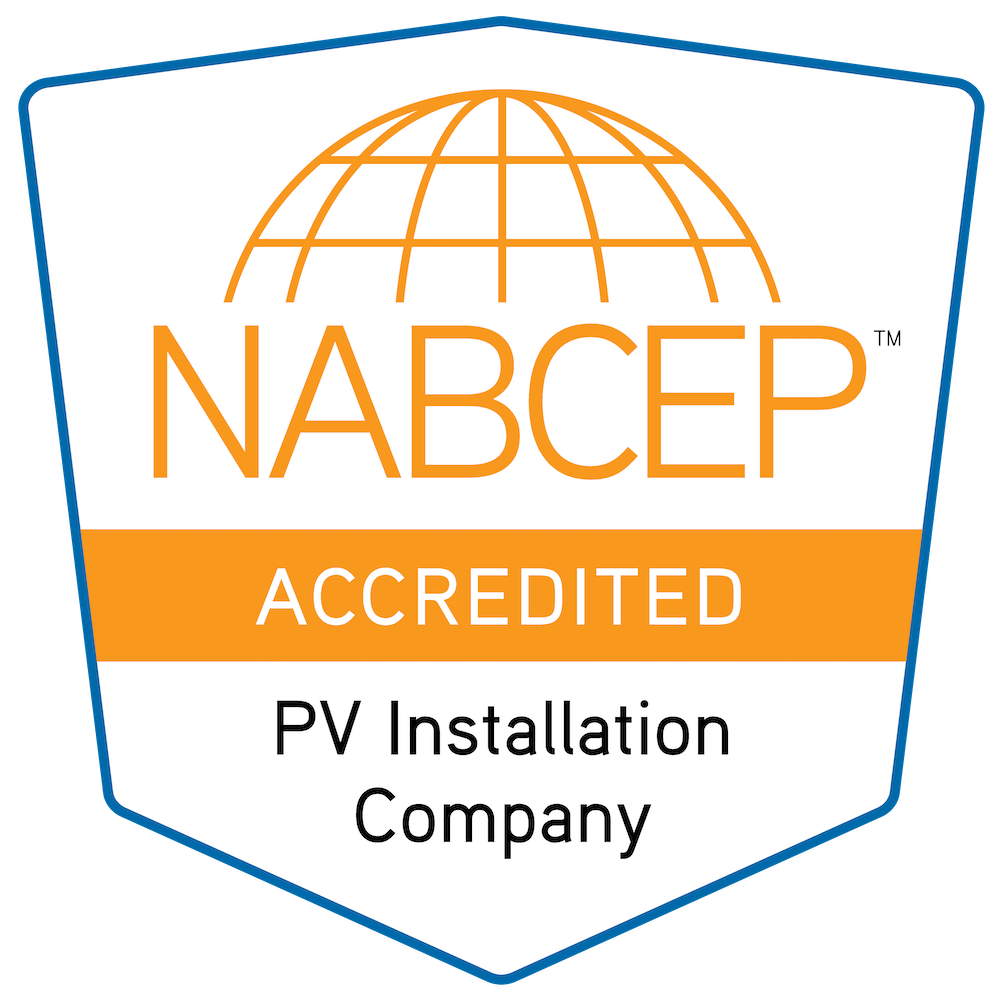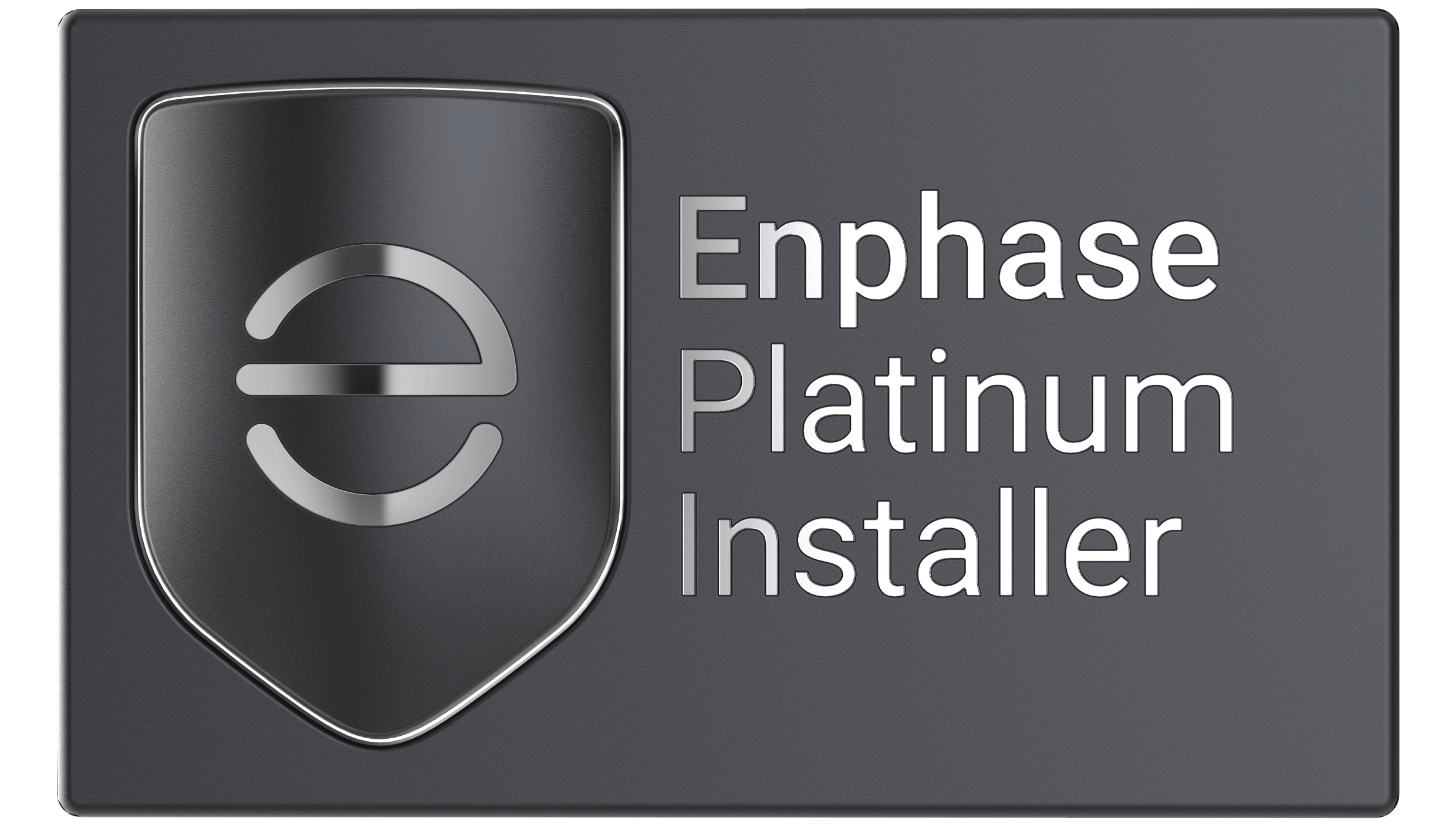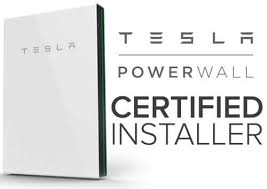Happy Independence Day!


The 4th of July holiday weekend is here. It’s got us thinking about independence, and more specifically, energy independence. There is something quintessentially American about leaving the grid. We are a fiercely independent people with no frontiers left to explore, yet the dream of the West still lives in us, that sense of self-reliance and freedom which gave birth to the greatest nation on Earth.
In this era of constant connectivity, globalization, and economic uncertainty, the allure of getting off the grid has drawn many people toward a simpler existence. There are various reasons folks are motivated to take that step, and our clients frequently speak with just a hint of longing for the ability to kiss the utility companies goodbye. In today’s post, we examine the recent phenomenon of “prepping,” and take a look at the way solar and battery back-up systems give homeowners the ability to become energy independent.
Why do it?
The number one reason to go off-grid is security in the event that the grid goes down. Our clients list a variety of reasons that this could happen, from simple scenarios like a hurricane, to events with greater implications like EMP attacks, economic collapse, and even war.
Electricity is something that most of us take completely for granted. When the grid is down, things get sticky and mean, and the longer it’s down, the worse things get. Having the capability to be self-reliant in that scenario makes many folks sleep better at night. For some, this means having a “bug-out” plan and a location out in the country where they’ll retreat to, while for others it means having their primary residence equipped to hold out indefinitely.
What does grid failure look like?
Floridians know how awful a few days without electricity can be. But what if it lasts longer? What happens? Without electricity, gas becomes almost impossible to obtain. Stations pump gas with electricity, so the station on the corner won’t be working. Those that are, in the event that they have generators, will charge insane prices. Gouging will be rampant for not only gasoline, but also essentials like water, food, and medicine. Unfortunately, without electricity, your credit card won’t work, and you won’t be able to run to the ATM to make a cash withdrawal, either.
These shortages lead inevitably to civil unrest. Even with Marshall Law and National Guard troops deployed, a month-long event would cost thousands of lives. People would fight and kill to protect and feed their families. Without refrigerators running, food will spoil, and without ovens to cook in, what food there is will be limited to dried and canned goods within a matter of days. Grocery stores will be looted first, along with big box stores, and anywhere else with a morsel.
Being Prepared
Most of us watch the weather, and if a hurricane looks like it’s definitely going to hit, we run out to Publix and by some batteries, candles, lots of water, and some cans of spaghetti. Preppers take the long approach, and they tend to be laying in supplies over long periods of time so that they are ready whenever the grid goes down. Here are some lessons we can learn from preppers:
- Have a “go-bag.” This can be a simple duffel bag that contains supplies to last the first 24-48 hours. Any medicine you need, some dried food, bottled water, antibiotics, a simple medical kit, a firearm and ammunition. If the sh@! hits the fan, you can grab the bag and go without notice.
- Stockpile canned goods
- Stockpile water
- Keep water-collection devices at home
- Build a well
- Keep a supply of gasoline ready for emergencies. Remember that gasoline goes bad after a couple of years, so change it out about once a year.
- Make a plan ahead of time. Discuss your plans with your family. If there is a hurricane on the way, where will we meet? If the grid goes down for some other reason, what are we going to do? If we’re headed for the country, what’s the best route, factoring in traffic jams and looters.
- Keep seeds on hand to plant a garden; better yet, plant a garden.
- Raise a few chickens. Build a coop, and you’ll never run out of eggs.
- Keep bicycles handy. This is a great way to get around if you’re trying to conserve gas, assuming it’s safe enough to travel.
- Have a security plan for your home. Keep hurricane shudders over windows. Maintain watches throughout the night to discourage intruders.
- Have friends. Preppers often have close friends that they make plans with. More people means greater security. Larger groups will make tougher targets to overwhelm.
Going off-grid with Solar
By combining your solar array with a battery-back up system, even if the grid fails, you will still have electricity. The solar array is tied to the grid, which means that you have the ability to draw from the grid when your usage exceeds the capacity of your solar system and the storage of your battery unit. But if the grid is out entirely, having a battery means that you disconnect from the grid and become self-sufficient. You are your own micro-grid.
The Sonnen battery, a product new to the American Market which has seen great success in Europe, is a fantastic solution and a great addition to your existing solar project. The battery is programmable and flexible, and gives you the ability to use in “self-consumption” mode so that it will not back-feed into the grid. During the day, your battery will be charged by your solar array, and at night you’ll pull electricity from the battery. The software includes weather prediction, which tells the battery how much to discharge and store, and homeowners can monitor the battery with a cell phone or computer. Furthermore, you can control your consumption by using “smart outlets,” which will only power on essentials. You decide what the battery operates. For example, you don’t want to run your air conditioner all the time if the grid is down. A better option is to run it during the day, and have a wall unit, which uses much less power. You won’t want to run your hot water heater, either, because it uses a tremendous amount of electricity. Batteries come in a variety of sizes to suit your needs, from the ECO 4, on up to the robust ECO 14.
Choosing your installer
As both batteries and solar become more prevalent in North Florida, contractors from out of state are coming into our region, trying to convince you to contract with them for your solar project. There are companies that focus on roofing which are now dabbling in the solar industry. When it comes to this investment, homeowners must consider some crucial factors.
A fully integrated solar array which combines battery storage and is tied to the grid is a highly complex project. In addition to a technical knowledge of the batteries themselves and the inverters and installation of the solar panels, the house must be wired properly to sustain the loads and ensure that each component works as designed. You probably wouldn’t buy an unassembled sports car for thirty-thousand dollars, and then go to a shady mechanic to put it all together for you, expecting the same sort of performance you would get if you bought the car from a reputable dealer. Hiring a company that runs one crew out of an old van, which also farms out much of the electrical work to install a solar project is like heading down to the home improvement store on a Saturday morning and picking up some guys hanging out in the parking lot to do an electrical overhaul of your house. You get what you pay for! A1A Solar has multiple journeymen electricians on staff who have experience with the complicated installation of the electric wiring on these systems, and our in house engineer is able to create custom designs for the proper installation of them.
The War on Solar in Florida
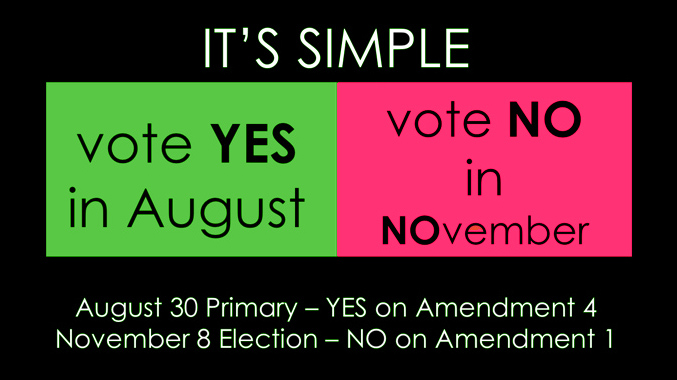
One question almost every client asks after signing up for solar is “why don’t more people do this here in Florida? It seems like a no-brainer.”
The answer: politics and money.
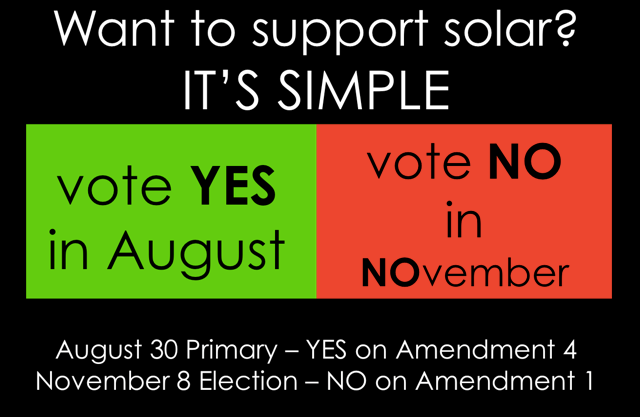
Florida ranks third in the nation for potential rooftop solar output, yet comes in a dismal 16th in actual production. “It defies logic,” says former Governor Charlie Christ. “It’s absolutely absurd.” Northeastern states like New York, New Jersey, and Massachusetts are ahead of the Sunshine State when it comes to rooftop solar, despite snow and cloud cover.
Follow The Money
The utilities in Florida have waged a systemic campaign against rooftop solar because they view it as a threat to their monopoly on power. Investor-owned utilities (IOUs) rack up staggering profits from coal, gas, and nuclear power. They make money through infrastructure projects and rate increases, and to protect their profit margins, wield tremendous power in Tallahassee among our state lawmakers. “The power companies hold sway here, and the consumers are at their mercy,” said state representative Dwight Dudley, the ranking Democrat on the energy subcommittee in the Florida State House.
Florida Power and Light, which proposed a 24% rate hike to the Public Utilities Commission this year, generated $1.65 BILLION in PROFIT last year for its shareholders. The oil and gas industries, which are heavily subsidized by the federal government, are pouring millions of dollars into Florida to thwart the growth of rooftop solar, aligning themselves with the utility companies.
Former Republican legislator Nancy Argenziano, who chaired the Public Utilities Commission until 2010 stated this: “The legislature is owned by utilities. To me, it’s extremely corrupt. The legislature takes millions from utilities, who make billions from the decisions of the PSC. They get what they pay for.”
Every year, the utilities spend millions of dollars on paid lobbyists to whisper in the ears of our legislators. They hold a carrot and a stick, because in addition to the money spent on lobbying, the utilities also spend millions each year on campaign contributions. Since 2007, utilities spent more than $12 million on lobbying, delivering an average of one lobbyist for every two legislators.
More money flows to legislators through PACs, funded by oil, coal, and natural gas interests. Energy magnates the Koch Brothers funnel dollars through various shadowy organizations, where the dark money can be spent without public scrutiny in order to slow the growth of solar in Florida.
In a display of unparalleled greed and deception, the utilities responded to the grassroots campaign mounted by the Southern Alliance for Clean Energy by outspending them and counterattacking.
Vote No On One!
Last year, the Southern Alliance for Clean Energy assembled an impressive and diverse coalition of forces in an effort to make solar more viable in Florida. From Tea Party voices like Debbie Dooley, who helped to found the party, to green organizations like the Sierra Club, the SACE sought to place an initiative on the ballot that would protect rooftop solar in the sunshine state.
The utilities redoubled their efforts, and introduced an initiative of their own. Slickly marketed and blatantly deceptive, the “smart solar” amendment gives more power to the utilities, masquerading as a “green” initiative, while being funded by dirty coal. Investor-owned utilities spent $4 million on the campaign. 60 Plus, a seniors group which got more than $15 million from the Koch donor network, ponied up more than $1 million. They confused petition-signers and even adopted similar language to that of the SACE campaign, ending with deceptive wording which will ultimately appear on the ballot in November.
Should the amendment pass, the utilities will have free rein to hit solar customers with high fees, monthly charges, and up-front costs. And that is exactly what they will do.
Pulling at heart-strings
One manipulative argument from the utilities is that solar customers are unfairly subsidized by those who do not have solar, and that this results in an unfair tax upon low-income families.
This is part of the bait-and-switch campaign the utilities have waged in Florida and in other parts of the country.
First of all, the energy produced from oil, natural gas, and pet-coke is already heavily subsidized by the federal government. The utilities begin with an unfair advantage, and ignore the fact that the energy they produce would cost more if the playing field were level.
Second, the value of energy from rooftop solar gets devalued by the utilities. A recent study by Arizona’s largest utility found that the value of solar is actually 50% more than the costs associated with it. When homeowners install solar on their roof, they are paying for the cost of the panels, not the utility. The excess power that flows back into the grid comes with no other hidden costs like power-plant upgrades, disposal fees, shipping costs, and environmental upgrades. Furthermore, the increased power leads to greater capacity for the utility, including peak usage times. Finally, rooftop solar leads to greater grid security in the event of an outage.
Subsidies for solar are dwarfed by those for oil and natural gas, which reveals that the argument made by utilities is a bold-faced lie. If utilities were so concerned about the welfare of their customers, they wouldn’t be posting billions in profits, doling out huge bonuses to executives, and increasing rates for everyone.
Moving Forward
Utilities must come to grips with the fact that a business model formed a century ago is outdated now, and face the fact that over the next 50 years, renewable energy will change the paradigm of monopoly. In Florida, solar has suffered from the political attacks waged largely by conservatives who are in the pockets of utilities, but that perception is changing rapidly. Many conservatives are shifting their attitudes toward solar, not out of concern for the environment, but because solar gives citizens the ability to become energy independent, and because it is a sound financial investment.
Rooftop solar is a choice many people make to invest in their future, and we should have the freedom to exercise that choice. The oil companies and utilities don’t want you to be able to choose to go solar because they are afraid to lose their monopoly.
Solar Wars 2

Solar in Jacksonville: A battle won, not the war.
Jacksonville Electric Authority made the right decision last month when they tabled the proposal to reduce the buy-back rate for grid-tied solar in Northeast Florida. The fact that the board elected to wait for further study and review is the direct result of concerned citizens speaking out against the changes JEA initially proposed. Unfortunately, a larger battle looms on the horizon.
Vote NO on 1!
The utilities in Florida formed a coalition called Consumers for Smart Solar, circulated a petition through paid canvassers, and received approval from the Florida Supreme Court to place an amendment to the Florida Constitution on the ballot in November. The language of the petition, the amendment itself, and the marketing campaign behind them are misleading. The average consumer may read the amendment and assume that it does in fact benefit the growth of solar, when the reality is that it will place regulatory authority in the hands of the utilities themselves. This will not be good for consumers, despite what the marketing blitz claims.
From the Consumers for Smart Solar website:
BALLOT TITLE: Rights of Electricity Consumers Regarding Solar Energy Choice
BALLOT SUMMARY:
This amendment establishes a right under Florida’s constitution for consumers to own or lease solar equipment installed on their property to generate electricity for their own use. State and local governments shall retain their abilities to protect consumer rights and public health, safety and welfare, and to ensure that consumers who do not choose to install solar are not required to subsidize the costs of backup power and electric grid access to those who do.
The slick advertising campaign, with the slogan “Vote Yes on One, For the Sun,” touts the idea that with this amendment, citizens are guaranteed to be able to place solar on their homes. If Amendment 1 was actually good for homeowners and the rooftop solar industry, solar contractors would embrace the changes. Instead, this proposed constitutional amendment will drastically restrict the growth of residential rooftop solar. The amendment summary employs almost identical language to what JEA used in their rate change proposal, implying once again that those who do not have solar subsidize those who do. This claim is blatantly false, and has been proven so.
According to JEA themselves, net- metering accounted for a revenue disparity in 2015 of $127,000. There are 524 net-metered customers out of over 450,000 JEA customers. This breaks down to $2.82 per JEA customer per year. Contrast this number with the more than 4 million dollars in bonuses JEA paid out to employees last year.
Furthermore, JEA has not accurately assed the value of grid-tied residential solar because they do not account for the fact that the energy they buy is completely green. Utilities nationwide are under federal mandate to increase renewable capacity, reducing the amount of energy they produce from coal and natural gas. Rooftop solar does precisely this.
While many utilities around the country are mired in paradigms of the past and business models that have yet to adapt to the changing energy landscape, others like the OUC in Orlando incentivize and encourage solar. This is a striking contrast with JEA. Here is a link to the OUC website:
http://www.ouc.com/environment-community/solar
Follow the Money!
So who supports this amendment? The utilities themselves do, along with those directly allied with the fossil fuel industry. Consumers For Solar Choice receives money from suspicious bedfellows.
Utilities:
- Duke Energy, $355,000
- Florida Power and Light Company, $595,000
- Gulf Power Company, $380,000
- Tampa Electric Company, $556,000
- Powersouth Energy Cooperative, $30,000
Outside funding, which is not transparent comes from various organizations including 60 Plus Association. This group benefitted from at least 34 million dollars from the Koch brothers since 2010, and secret funding from Arizona’s largest utility to run ads opposing solar. Eventually they were exposed by Arizona Republic.
Floridians deserve better. Amendment 1 is deliberately misleading, and the fact that those who are pushing it are firmly aligned with the fossil fuel industry should let smart voters know that it’s not a good idea to give the fox the keys to the henhouse.
JEA to vote on SolarSmart
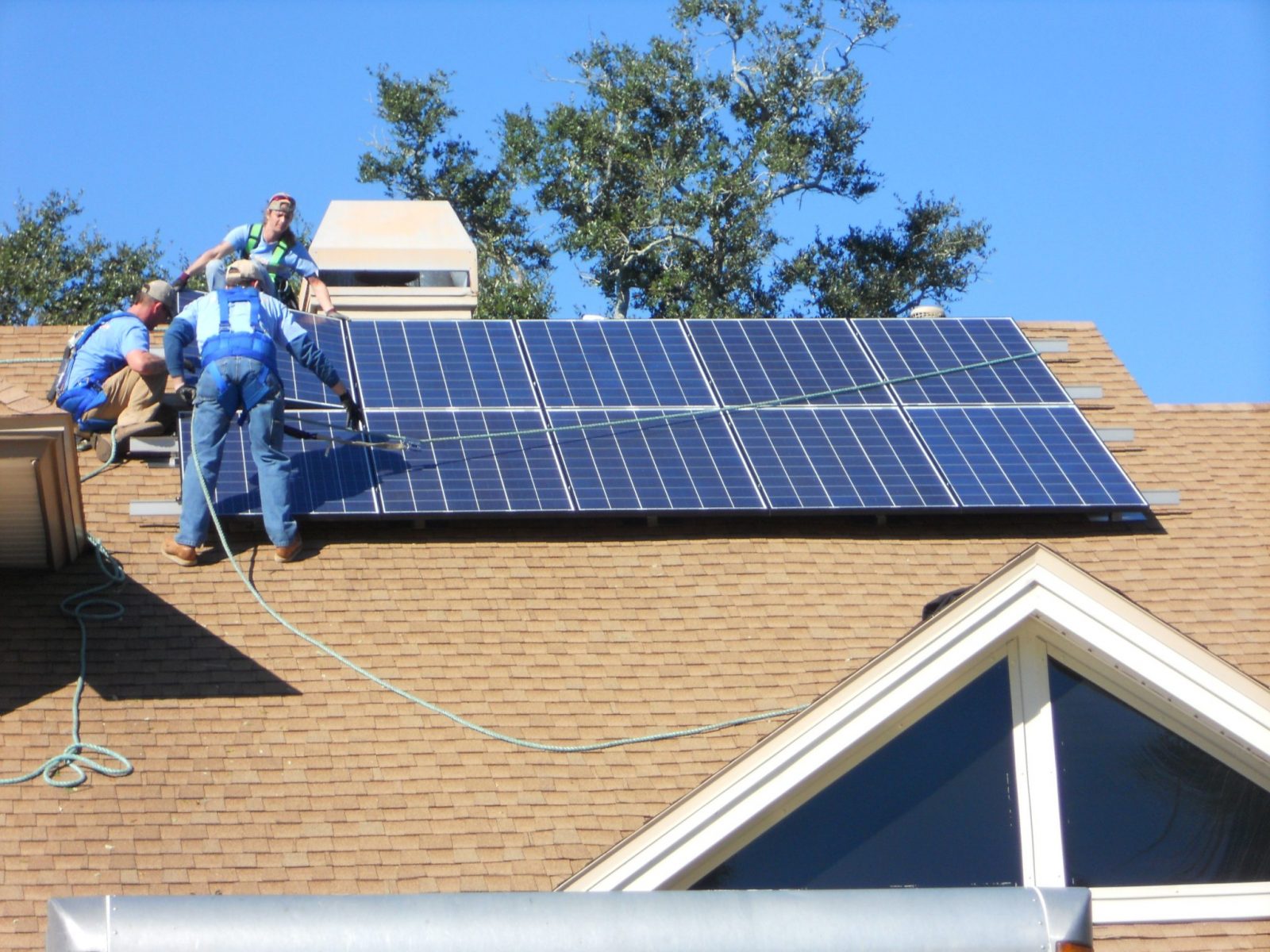
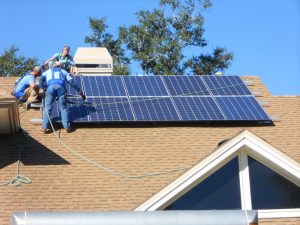
JEA would be taking an unnecessary, premature step in the wrong direction by enacting their proposed SolarSmart policy. JEA had $1.7 BILLION in revenues last year; the bill credits for the entire net-metering program totaled less than .000075% (less than 1/10,000th of 1 percent) of that total. They are spending too much time and money trying to ‘fix’ a solar problem that doesn’t exist, and in doing so, they are harming Jacksonville’s reputation, the job market, and the economy. SolarSmart is bad for JEA, bad for homeowners, and bad for Jacksonville.
JEA claims: JEA wants to pay homeowners a ‘fair’ rate for solar buy-back from rooftop generation.
Fact: JEA bases their buyback rate on an unrelated, pre-negotiated, contract wholesale rate from a PPA with an outside company. Studies consistently value rooftop solar at rates upwards of $0.18/ kWh; JEA believes it is fair to reduce the current rate from retail of $0.11/kWh down to $0.07/ kWh. JEA has done no study on the value of solar. The only fair method to determine a real value would be an independent study on the value of solar in Jacksonville with input/questions from both JEA and the solar & environmental industry.
JEA claims: Current solar customers are being subsidized by non-solar customers.
Fact: Rooftop solar provides quantifiable monetary value in addition to the energy cost*. Distributed generation/rooftop solar benefits everyone on the grid, not just the homeowner. JEA ignores all of these additional benefits. According to many reputable studies, solar power is actually more valuable to the power company than the power it creates.
Fact #2: If JEA wants to discuss subsidies, perhaps we should ask them who is subsidizing their huge bonuses each year. JEA has paid $0.00 total to solar customers for back-fed solar. The approximate value of the bill credits solar customers received in return for their back-fed solar last year was $127,000 in total, about $250 per home per year. JEA bonuses totaled approximately $250,000.
JEA claims: JEA claims on one hand that solar is too expensive and that Florida is not a good area for solar; but then on the other hand they say they are ‘solar friendly’ because they’re building millions of dollars worth of utility owned solar farms all over Jacksonville.
Fact: JEA plans to offer centralized solar to its customers, at a huge premium. They will be able to power 5,000 homes with their centralized solar. A homeowner that chooses to receive 100% of their energy from JEA’s solar farms will pay a 25% higher electric bill than they normally would.
Question: Who (if any) of 5,000 JEA customers will volunteer to have a 25% higher electric bill? SolarSmart is an ‘alternative for residential or business customers who can’t afford’ rooftop solar. Will these customers volunteer to pay 25% more every month? In addition, the utility scale solar will cost JEA ~$5 million. Who is subsidizing that $5 million, if no one buys into the program?
* Some standard factors that add value to solar are: reduced transmission & distribution line losses, fuel hedge benefits, increased grid resiliency, and avoided capacity & capital investment. Additionally, there are environmental and societal benefits (the monetary value is harder to calculate, but everyone agrees that they are extremely valuable) like: cleaner air, conserved water, preserved open space, and reduced climate impacts.
Solar Wars Jacksonville

The Battle So Far…
As rooftop solar has grown in popularity throughout the JEA service area, the utility has grown increasingly adversarial to the solar industry. There is no sound reasoning behind this stance, and the arguments the utility makes to support its case are essentially smoke and mirrors. The bottom line is, they feel threatened by rooftop solar, and are fighting to maintain their monopoly on power in Jacksonville.
It shouldn’t be this way.
This month, the JEA board of directors will either approve or deny a proposal to crush the rooftop solar industry. Their idea is to reduce the buy-back rate for grid-tied solar, wrecking the economics of solar for homeowners. This would mean that rather than paying a fair rate for the electricity residents generate and sell back to the utility, homeowners will receive credit for only a fraction of what that power is worth.
David versus Goliath
JEA is a huge business, with 2015 revenues of 1.7 billion dollars. The coal-fired plant looms just off 295, and the smokestacks are visible from almost anywhere in Jacksonville. The fossil-fuel industry and public utilities are bedfellows; JEA uses coal for 50% of its energy production.
The utilities, JEA included, are waging a statewide war on solar power in the state of Florida. Their resources are vast and tactics underhanded.
A striking example is the recent Florida Supreme Court decision to place a ballot initiative which the utilities advocated. The utilities employed canvassers statewide to get people to sign a misleading petition in order to get an amendment onto the November ballot. What this will do is place regulatory authority for solar with the utilities, which is like giving the fox the keys to the henhouse. The language of the amendment is deliberately misleading, making voters think they are supporting rooftop solar, when the truth is the opposite.
JEA is using its size and muscle to stomp on the solar industry in Jacksonville, hurting homeowners and the city itself. They are behaving this way because they thought they could get away with it, sliding this current proposal in without the public at large being aware of it. Now, amidst public outcry and a flood of negative press, JEA is at least allowing for public input. They have the opportunity to redeem themselves as a public-owned utility, and partner with, rather than fight the solar industry and consumers who would like the option to generate their own power.
What can I do? It’s easy!
- Attend the JEA workshop on solar Thursday, April 7 at 1pm at the JEA offices downtown. These proceedings will be open to the public.
- Vote NO on the amendment in November!
- Contact JEA and let them know how you feel at solar@Jea.com.
- Fill out this form and we’ll get you in touch with the board of directors at JEA
What is JEA missing in its valuation of solar?
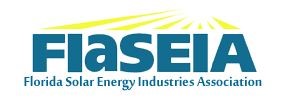
 By arbitrarily valuing distributed rooftop solar at $0.075 per Kwh, JEA is overlooking the many quantifiable values that rooftop solar delivers to all ratepayers. With only 500 homes out of 427,000 JEA customers having solar on their roofs, the benefits of rooftop solar to all JEA ratepayers is just beginning to be recognized.
By arbitrarily valuing distributed rooftop solar at $0.075 per Kwh, JEA is overlooking the many quantifiable values that rooftop solar delivers to all ratepayers. With only 500 homes out of 427,000 JEA customers having solar on their roofs, the benefits of rooftop solar to all JEA ratepayers is just beginning to be recognized.
Distributed Rooftop Solar is a Net-Benefit to All JEA Ratepayers.
- Energy benefit – that actual amount of power produced on each rooftop lightens the generation and transmission load, which results in savings to all JEA ratepayers.
- Capacity benefit – more rooftop solar reduces the need for future power plant construction, which results in a savings to all JEA ratepayers.
- Private investments — the individual customer makes the investment in the system and bears all the costs and risks. Instead of all ratepayers chipping in to share the cost of new generation, rooftop solar is paid for by private investment, which results in a savings to all JEA ratepayers.
- Fuel saving benefit – consumers with rooftop solar use less fuel generated used by the utility, resulting in a savings to all JEA ratepayers.
- Reduced Transmission & Distribution line losses – transmission and distribution systems are massively inefficient. Rooftop solar virtually eliminates transmission loss when excess electricity is shipped to the grid and consumed by the nearest neighbor, which results in a savings to all JEA ratepayers.
- Fuel hedge benefits – solar uses no fuel, therefore no need for the utility to enter into fuel hedging contracts. Fuel hedge contract premiums are passed on to customers – a lot of price volatility associated with fossil fuels. Reducing these contracts is a savings to all JEA ratepayers.
- Environmental benefit – solar uses no water, has no emissions, therefore has no environmental compliance costs – power with no compliance costs is a huge benefit to the utility – especially one as coal-heavy as JEA. Reducing these environmental compliance costs is a savings to all JEA ratepayers.
- Economic benefit – job creation and the economic multiplier associated with those jobs, not to mention money staying in the local community instead of paid to JEA to partially pay for fuel (coal/natural gas) imported from out of state.
Special thanks to FlaSEIA for all their hard work in fighting JEA’s proposed changes to their net-metering policies.
A JEA proposal threatens to pull the plug on SBA’s Florida Small Business of the Year

A fast-growing local business says that if the JEA board approves the proposed SolarSmart policy on April 19, it will mean pulling the plug on the company’s growth potential and, ultimately, livelihood. The United States Small Business Administration named A1A Solar Contracting’s CEO, Pete Wilking, the 2016 Florida Veteran-Owned Small-Business Person of the Year.
Wilking, a U.S. Navy Persian Gulf War veteran, founded A1A Solar Contracting in 2010 after noting a demand for a highly qualified company to design and install solar panels on residential and commercial buildings in Northeast Florida.
His solar business, along with many other small businesses, will incur damage and be forced to lay off staff if the changes are approved by the JEA board of directors. The need Wilking once recognized will disappear and JEA will monopolize the solar industry.
“The SolarSmart policies could put my company out of business, along with many other local companies,” Wilking said. “That could mean hundreds of local jobs lost. Small businesses are the backbone of our community and our country. These changes are crushing rooftop solar.”
The SolarSmart changes, if approved, will decrease the rate that JEA pays customers when purchasing the excess solar power their rooftop panels generate. This would make customer-owned solar panels economically less appealing. Additionally, JEA’s power grid would generate solar power and wire it directly to homes, which would make rooftop panels unnecessary. The board of directors is scheduled to vote on these drastic changes on April 19.
Wilking and many other opponents of the proposed SolarSmart changes speak out against JEA in an effort to forestall the negative effects their businesses and employees could face; they encourage the public to take action. JEA says it is listening and asks concerned citizens to voice their concerns directly to JEA by emailing solar@jea.com.
The SBA will recognize Wilking and all other 2016 winners at the Annual Small Business Week & Lender Awards Celebration on May 5, 2016, at the University of North Florida’s University Center from 11:30 a.m.–1:30 p.m. The Small Business Development Center at the University of North Florida will host the event.
Jacksonville’s highest-paid utility CEO may shut down local businesses

Paul McElroy is the CEO of JEA, the municipal electric utility serving Jacksonville, Florida, and receives a salary of $437,000, among other perks. According to The Florida Times-Union, this makes him the highest-paid utility authority CEO in Jacksonville, as of September 2015.
The municipal utility runs all of the electricity in the Jacksonville area with little to no competition. Its only real competition comes from individuals who choose to install private rooftop solar panels: Residential and commercial buildings with their own solar panels do not rely on JEA’s services to generate their power. For them, the initial investment to have the panels installed is the only cost they pay for energy. After all, why pay a utility for energy when sunshine is free?
However, sunshine won’t be free for much longer if McElroy gets the JEA board of directors to approve the SolarSmart policy. The changes will make current net-metering policies less appealing to customers and will hurt the solar industry overall by disincentivizing investment in private solar panels.These policy changes will effectively shut down local small companies and allow JEA to take over the Jacksonville solar market. The municipal utility plans to generate solar energy through a large industrial power grid and wire it to customers, charging a fee for use of the sun.
Email JEA CEO Paul McElroy and the board of directors at solar@jea.com and tell them what you think of their proposed SolarSmart policy.
How to Choose the Right Solar Company

Nationwide, more homeowners install solar every three weeks than in the entire year of 2008. In Jacksonville, the growth of solar has been exponential. Because of increased demand, there is more competition than ever for your dollars. Companies from out of state are vying for jobs, and roofing firms are trying to figure out how to get into the solar business. Anyone with a contractor’s license and a panel van can claim they are in the industry, and at some point, they will come knocking on your door. It’s important to choose the right company.
Going solar is one of the single best investments a family can make, with the average homeowner saving well over thirty thousand dollars over the life of a system. It’s not only good for the planet, but it’s also a prudent financial decision. Not all companies are created equal, and the return on your investment is directly tied to which company you decide to go with. Shoddy workmanship and misleading numbers can undermine your project and leave you fuming.
What to look for
- Integrity: Look up the contractor’s reviews online. Check out Angie’s List and SolarReviews.com. Both of these sites allow consumers to leave honest reviews. What do other homeowners say about the company you are considering? If there are few reviews, this should be a warning flag.
- Professionalism: Ask to see some pictures of installs that the company has performed. What sort of trucks do they use? How many installs have they done over the last few years? Is the company NABCEP certified? Have they performed successful government and commercial installs? Consider taking a tour at the offices of more than one company if you are on the fence, which will provide an excellent window of the professionalism of the respective contractors.
- Language: Listen carefully to what the sales consultant is promising. If he or she insists that you will “never have an electric bill again,” ask them to leave. Net-metering means that your credits roll over from month to month, but there will be some charges from the utility. Your consumption varies, with large electric bills resulting from high usage months during the summertime. Your solar array will produce kilowatts, which the utility will credit you for in the form of kilowatt hours, the measure of the energy you consume. If your consultant isn’t looking at your actual usage, the he is not going to provide you with accurate numbers. We sell based on kilowatt hours, and the equations our engineers use provide a conservative estimate of your annual production.
- Under-promise, Over-deliver: This is the consistent mantra of successful companies that have repeat customers and sizable referral bases. Fly-by-nights and business who are invested in you only for the short term boast the opposite philosophy. Ask for a layout and production analysis from your contractor.
- Value: The best price is seldom the best value. It’s simple to reduce price by cutting corners, a common practice in the home-improvement industry. From the materials used to secure your panels to your roof, to the panels themselves, and the experience level and professionalism of the installers and electricians, cutting corners on the front end invariably leads to headaches down the road. Solar is a long-term investment, which, when done right, yields amazing results. It’s important to know that the company you choose will stand behind the product they’ve sold you. Will the contractor still be in business five years from now? If (God forbid) you have an issue with a leaking roof, will you be able to contact the contractor, and will they make it right? The value of your solar is directly tied the company you choose.
Moving forward
We welcome competition in the marketplace, as this is good for consumers. Competition is the heart of capitalism, creating jobs, leading to innovation, and providing the best overall value for homeowners. Solar will continue to grow and thrive in sunny Florida.
The economic benefits of solar have never been better.
JEA: PROFITEERING OFF SOLAR CUSTOMERS

JEA aims to corner the solar market and edge out rooftop solar in Jacksonville
 Thomas Jefferson said “the sheep are happier left to themselves, than under the care of the wolves.” As the Jacksonville Electric Authority eyes proposed changes to regulations for roof-top solar, this public utility must decide what sort of entity it is: will it build community, which is its motto, or destroy it. At the recent board meeting held on the 18th floor of the JEA tower, the board listened patiently to members of the Jacksonville business community and concerned citizens. Let’s hope they actually heard.
Thomas Jefferson said “the sheep are happier left to themselves, than under the care of the wolves.” As the Jacksonville Electric Authority eyes proposed changes to regulations for roof-top solar, this public utility must decide what sort of entity it is: will it build community, which is its motto, or destroy it. At the recent board meeting held on the 18th floor of the JEA tower, the board listened patiently to members of the Jacksonville business community and concerned citizens. Let’s hope they actually heard.
What is the plan?
In broad terms, JEA is planning to launch a new policy, SolarSmart, which substantially changes current policy. Under this plan, JEA would reduce the buyback rate for grid-tied solar by 36%, taking the current rate of about $0.11 per KWH down to $0.07 per KWH. In addition, JEA would build ‘solar farms’ to add an additional 38 MWH; customers would have the option to purchase solar energy produced by JEA at a premium of $.075 per KWH (making the total price of JEA-produced solar power $.195 per KWH, well above the $0.11 per KWH customers currently pay)
Profiteering
The singular argument that utilities use to justify anti-rooftop solar policies is that solar ratepayers are subsidized by non-solar. This has been refuted over and over again all over the country. Not only is it false, in fact, the exact opposite is true. While it is true that the utility is losing some revenue stream, this loss is more than made up in reduced expenditure-in fact, there is actually a net-gain due to things like zero fuel costs, no line loss, no debt service, and several other factors. JEA closely tracks credits to solar customers for back-fed solar, but does not seem to place any value for that same KWH sold to the house next door. It is unacceptable that JEA would like to generate its own solar power and charge ratepayers a premium for it, but also to claim that identical power produced by rooftop solar is worth less. Essentially, they’re planning to excessively profit from both types of solar customers.
Hostile Takeover
Rooftop solar accounts for only a tiny fraction of the total energy mix in Jacksonville (less than 1%). The changes JEA is planning to enact are unnecessary and draconian; they’re designed to and would result in essentially the end of rooftop solar in Jacksonville. If these proposed changes go into effect, JEA will have quietly committed the hostile takeover of solar in its service area. Public-owned utilities aren’t supposed to behave this way. In Nevada, something similar has occurred; Nevada Energy, which is owned by Berkshire Hathaway, has destroyed the economics of roof-top solar overnight with the stroke of a pen. The public outcry has been national news for weeks. JEA is Florida’s largest municipal utility; surely, as Mike Antheil, Executive Director of Florida Solar Energy Industries Association said, “There are more than just the eyes of the people in this room [on JEA].
Impacts
Real people with real jobs will be put out of work by these proposed changes. The economic ripples will wash over families and the community. Can a company with the motto “building community,” move forward with a plan which will actively destroy lives and strangle an entire sector of that very community? Ironically, should this policy pass, it will leave Jacksonville a less attractive option to new business and will hinder our city’s growth, which equates to the hindrance of JEA’s growth, too.
Perception
Renewable energy is the future, and Jacksonville would like to define itself as a forward-thinking, vibrant city of tomorrow, rather than the slightly smelly backwater the name conjured in years past, where folks are set in their ways and change is seen as a threat. We are better than that, we are on our way to becoming vibrant, diverse, and truly metropolitan. Our city needs to attract more businesses, more intellect, and the energy of youth. This proposal is a step backwards in every way for this great city, for these changes will stifle growth and stain the community with small-mindedness, provinciality, and stagnation.
Conclusion
Reducing CO2 emissions is a global priority. In the first ever universal global climate deal, the Paris Agreement from 2015 outlines a global action plan to avoid dangerous climate change. Solar energy is one of the cleanest energy sources available. It’s clear that people overwhelmingly support solar here in Jacksonville and the rest of the world. Almost daily we hear how quickly the solar industry is growing, how much new solar is installed throughout the country and the world, and how dirty, nonrenewable fossil fuels are becoming a thing of the past. We need to be part of the solution, not further the problem.
Our citizens want solar. This proposal from JEA runs counter to the will of the people it is chartered to serve. So call your congressman, write the Mayor’s office, bug your city councilman, and let them know that you think these changes are unfair. Beat back the wolf.


